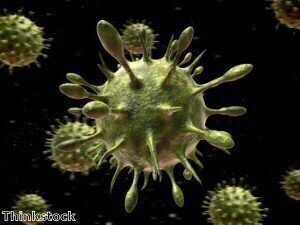Solid phase extraction (SPE)
Antibody cocktail research helps tackle Ebola virus
Jun 14 2012
Research carried out at the National Microbiology Laboratory in Winnipeg, Canada, has shown that an antibody cocktail has helped cure monkeys of the Ebola virus.
The mixture of three antibodies was first administered to the monkeys 24 hours or more after exposure and the results raise hope that a human version of the cure can be found.
Researchers behind the project administered the mixture, named ZMAb to cynomolgus monkeys (Macaca fascicularis), who were infected with the deadliest strain of Ebola, the Zaire virus.
The results, which have been published in the Science Translational Medicine journal, showed that all four of the monkeys on the three-dose treatment regime within 24 hours of being infected survived.
Also, two of the four monkeys given the cocktail from 48 hours of infection also managed to survive too.
The only monkey not to survive was the one not treated, who died within five days of infection.
Gary Kobinger, a medical microbiologist at the University of Manitoba who led the study, told nature.com: "The antibodies slowed replication until the animals’ own immune systems kicked in and completely cleared the virus."
The antibodies were designed to target and neutralize the glycoprotein located on the surface of the virus which allows it to enter and infect cells.
While other previous attempts have been made to go about this in the same way, this fact that this used a cocktail containing multiple antibodies, each targeting different locations of the glycoprotein, proved to be the key.
Thomas Bowden, a structural biologist at the Wellcome Trust Centre for Human Genetics at the University of Oxford, said that the research could play a key role for humans suffering from the virus.
"The therapy could be far more effective than others currently available," he told the website.
"This is certainly a viable strategy (multiple drugs) and they have only a few steps before they can go through to humans."
Words of caution were issued by Dennis Burton, an immunologist at the Scripps Research Institute in La Jolla, California, however.
He said that while it may be a step forward, the planned treatment was unlikely to help in cases where infection was established and symptoms prevalent.
Posted by Ben Evans
Events
Jan 20 2025 Amsterdam, Netherlands
Feb 03 2025 Dubai, UAE
Feb 05 2025 Guangzhou, China
Mar 01 2025 Boston, MA, USA
Mar 04 2025 Berlin, Germany













